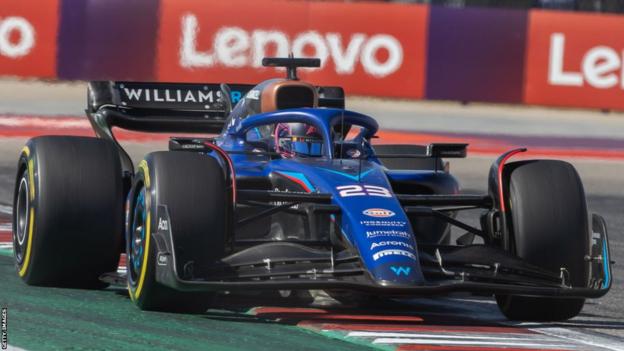
Formula 1’s governing body has rejected a request by Haas to change the results of the United States Grand Prix.
It was ruled there was “no significant and relevant new element that was unavailable to Haas” after the race.
However, the stewards did determine that current policing of track limits is “completely unsatisfactory” and demanded changes.
Haas’ appeal was based on claimed track limits transgressions by several cars who finished ahead of theirs.
Track limits controversies are common at a number of F1 tracks, especially Austria’s Red Bull Ring, Losail in Qatar and the Circuit of the Americas in Austin.
A statement rejecting Haas’ appeal added: “The stewards find their inability to properly enforce the current standard for track limits for all competitors completely unsatisfactory and therefore strongly recommend to all concerned that a solution to prevent further reoccurrences of this widespread problem be rapidly deployed.”
It added: “Given the number of different circuits where significant track limit issues arose this season, acknowledging that the FIA in conjunction with the circuits have already made significant strides, further solutions should be found before the start of the 2024 season.”
The verdict added that track limits offences were “almost universally enforced” based on images from a fixed CCTV camera.
Stewards found that the camera used to police track limits at Turn Six in Austin “did not meet [the required] standard”.
In this case, the Williams cars of Alex Albon and Logan Sargeant, Red Bull’s Sergio Perez and Aston Martin’s Lance Stroll were cited by Haas.
All were claimed to have exceeded track limits at Turn Six on a number of occasions during the race but not penalised for it.
The usual penalty for a series of track limits transgressions is five seconds added to a drivers’ race time.
For a right of review to be considered, it has to be established that there is significant and new evidence that was not available at the time the original decision was taken.
Steward ruled that while the on-board camera footage of Albon’s car was significant, it was not new or relevant.
All the others failed to meet any of the thresholds, stewards ruled.